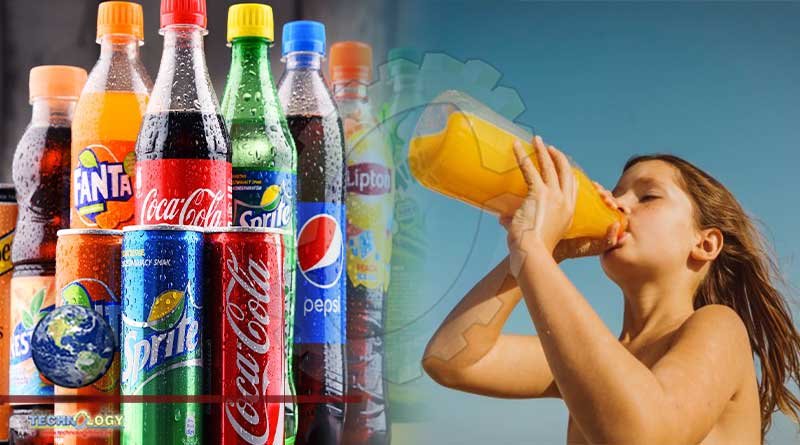The intake of candy and cold drinks can affect kids’ health negatively. High sugar and artificial colour content could lead to obesity, tooth decay, and other health issues.

In gatherings of all sorts, cold drinks and candies are a must. Sugary drinks (also categorised as sugar-sweetened beverages or “soft” drinks) refer to any beverage with added sugar or other sweeteners (high fructose corn syrup, sucrose, fruit juice concentrates, and more).
This includes soda, pop, cola, tonic, fruit punch, lemonade, and sweetened powdered drinks, as well as sports and energy drinks that can satisfy your taste while leaving several effects, which is why in some US states their use is banned.
Candy and cold drinks have been loved by kids worldwide. However, their impact on human health, particularly on children, is a topic of growing concern. So, what’s the story behind their addictive appeal and potential health risks?
On a family dinner trip, you would often hear, “Mom, can I have some candy? or “Dad, I want a cold drink. Candy and cool beverages are often favourites among kids for a reason. Their sweet taste and appealing colours can easily lure them. However, how ‘sweet’ is this for their health? Perhaps, not.
The intake of candy and cold drinks can affect kids’ health negatively. High sugar and artificial colour content could lead to obesity, tooth decay, and other health issues. Several studies have even outlined a connection between high sugar consumption and the risk of diabetes and heart disease later in life.

Tooth decay is mainly due to high sugar content, which erodes tooth enamel, leading to cavities.
Obesity is mainly due to excessive calorie intake, which can lead to weight gain.
The cause of type 2 diabetes is associated with high sugar levels and can significantly affect insulin production. Increased sugar levels are linked to high blood pressure and heart disease.
Understandably, eliminating these treats from kids’ diets may not be feasible. Kids are kids, after all; they enjoy these sweet temptations. However, what parents can ensure is moderation: allowing goodies like candies and cold drinks on special occasions or as a rare treat. This way, kids can enjoy their favourites without compromising their health too much.
![]()
Can we imagine a world without the sweet delight of cola drinks? Today, the question isn’t about its absence but rather about a potential ban on cola drinks. Could a ban be a plausible and necessary step towards a healthier society? That is a million-dollar question.
With increasing awareness about health and lifestyle, there’s a spotlight on the potential ill effects of cola drinks. The high sugar content, artificial flavours, and preservatives present in cola drinks have raised alarms worldwide, resulting in talks about potential restrictions. Could a ban on cola drinks really be enacted?
In most cases, the answer isn’t so simple. On the one hand, a ban might force consumers to adopt healthier drink choices. However, on the flip side, it could also infringe on personal freedoms.
The high sugar content in cola drinks is often cited as a leading cause of health problems such as obesity, diabetes, and dental issues. Regular consumption can lead to an unhealthy lifestyle, causing chronic conditions that take years to reverse.
Regulatory authorities such as the Food and Drug Administration (FDA) have strict measures in place for maintaining safety standards. Instead of outright bans, they often opt to cap limits on harmful ingredients. Can such measures be enough to curb the ill effects of cola drinks?
Global perspective
Several countries have taken different measures to limit cola consumption. For instance, France banned unlimited sugary drink refills in 2017, while the UK introduced a sugar tax on soft drinks in 2018. These steps have encouraged companies to reformulate their products with less sugar and more natural ingredients.
A ban on cola drinks can also affect the economy. The cola industry not only generates revenue but also provides employment opportunities. Therefore, the impact of a ban might not be entirely positive.
While the idea of a ban on cola drinks leans towards improving public health, it is important to weigh all factors, including liberty of personal choice and economic and employment implications, alongside health concerns. It seems that the answer isn’t black and white; encouraging responsible consumption and promoting healthier alternatives may be more effective than outright bans.
While candies and cold drinks may hold a certain appeal to children, their effect on human health cannot be ignored. Parents can play a significant role in moderating their child’s intake. Remember, a healthy child is a happy child!